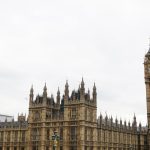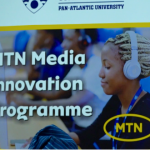Pulitzer Center AI Accountability Fellowships 2023 for Journalists Worldwide. Apply below.
When is Application Deadline: 1st July 2023
Tell Me About Award: The Al Accountability Fellowships seek to support journalists working on in-depth AI accountability stories that examine governments’ and corporations’ uses of predictive and surveillance technologies to guide decisions in policing, medicine, social welfare, the criminal justice system, hiring, and more. View the 2022 AI Accountability Fellows here.
We seek to support journalists and newsrooms that represent the diversity of the communities impacted by AI technologies. The Fellowship is designed for reporters from all beats, desks, and formats who want to broaden, deepen, and diversify reporting on artificial intelligence with an accountability lens.
Journalists need to apply with a reporting project they wish to pursue during their Fellowship. We encourage enterprise and accountability projects that use a variety of approaches—including data analysis, records requests, and shoe-leather reporting—to delve into the real-world impact of algorithms on policy, individuals, and communities.
In its first year, the Fellowship supported 10 Fellows reporting in 10 countries. The 2022 cohort of AI Accountability Fellows reported on themes crucial to equity and human rights, such as the impact of AI on the gig economy, social welfare, policing, migration, and border control.
While we welcome projects on a broad range of issues related to the impact of AI in society, this year we are also placing special emphasis on certain topics. We are seeking to support at least one project that examines the intersection of AI and conflict, war, and peace. In partnership with Digital Witness Lab at Princeton University, we are also recruiting one project that focuses on the role the messaging platform WhatsApp plays in influencing public discourse in a particular community. Applicants with reporting projects on these topics are strongly encouraged to apply.
The 10-month Fellowship will provide journalists up to $20,000 to pursue their reporting project. The funds can be used to pay for records requests, travel expenses, data analysis, and stipends. In addition, the Fellows will have access to mentors and relevant training with a group of peers that will help strengthen their reporting projects.
Successful applicants will be expected to join a mandatory 90-minute meeting held every month and to engage with other Fellows in virtual meetings and on the community’s dedicated online platform.
We require the sharing of methodologies and lessons learned so each story may serve as a blueprint for other newsrooms pursuing similar projects.
Type: Fellowship
Who can Apply?
- Staff or freelance journalists working on a wide range of platforms, including print, radio, video, and multimedia.
- Team players with the experience and/or ability to work collaboratively across newsrooms and borders.
- Reporters with a deep interest in how AI impacts the world, and why this issue matters to our global well-being.
- Reporters willing to participate in outreach activities related to their investigations, such as events at schools and universities.
Which Countries are Eligible? Any
Where will Award be Taken? Reporters can be based anywhere. The Fellowships are remote.
How Many Awards? Not specified
What is the Benefit of Award?
- The opportunity to work on an urgent, underreported issue for a substantial period of time.
- Access to mentors and specialized training opportunities.
- Pro bono legal and public records access support.
- A community of like-minded colleagues that will continue beyond your Fellowship.
- Financial support to cover records requests, travel expenses, data analysis, and stipends.
- The opportunity to find strong collaborators for your project or future projects.
How much financial support will Fellows receive?
The Fellows are eligible to receive up to $20,000 divided in three payments. Please include a detailed budget explaining your reporting expenses. You may include a stipend to pay for your time if you are a freelancer. We expect newsrooms to pay for their staff members’ salaries.
How Long will Award Last? The Fellowship is expected to start in early September and last through July of 2024.
How to Apply: TO APPLY, YOU WILL BE ASKED TO PROVIDE THE FOLLOWING:
- A short statement of purpose: how this Fellowship fits in your career path and why you are best positioned to be an Al Accountability Fellow. (500 words)
- A detailed description of the reporting project you seek to pursue during your Fellowship. Please do not propose general themes, but propose a concrete project that shows some pre-reporting on the subject. A compelling, well-researched project proposal with a reporting plan will help you stand out among dozens of applicants. (500 words)
- A budget that lays out anticipated costs of the project. Categories may include records requests, software, data analysis, travel and lodging, and stipends.
- Three examples (links) of your best stories published in the past three years (not necessarily on artificial intelligence).
- A letter of commitment or interest from a media organization(s) that would publish your story(ies). If you are a staff reporter, a signed letter from your editor or newsroom manager confirming you have their support in applying for the AI Accountability Fellowship. This letter should explicitly state that your newsroom will allocate time for you to participate in the Fellowship activities and the newsroom will support publishing the stories you produce through this Fellowship. It can also include information on why your manager thinks you would be suited for this Fellowship.
- Three professional references: These can be either contact information or letters of recommendation.
- A copy of your resume or curriculum vitae.
We encourage you to submit your application early. We will schedule interviews with finalists on a rolling basis. We encourage proposals from journalists and newsrooms that represent a broad array of social, racial, ethnic, and underrepresented groups, and economic backgrounds.
Visit Award Webpage for Details









